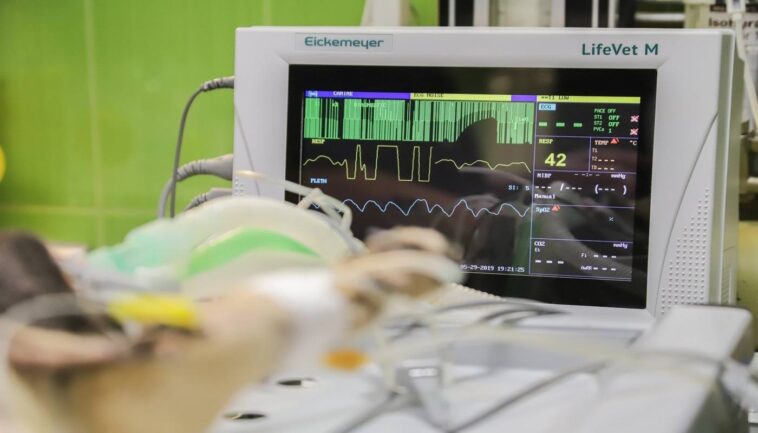Rabbits are young social mammals that give birth to their young ones alive. There are numerous species and breeds of rabbits, the domesticated ones are called Oryctolagus cuniculus and most have the ability to be domesticated because of their quiet, harmless prolific nature, healthy nature of their meat, easy management, and long life span of 8 to 12 years if properly cared for, unlike other small animals.
They are herbivorous animals because they feed mostly on plants though they practise caecotrophy which is the reingesting of their droppings.
Just like every other animal has their unique characteristics, rabbits also have and that is their speed and ability to sense danger with their eyes.
Do I Need To Take My Rabbit To The Vet?
The answer is Yes. One of the ways to maintain the health status of your rabbit is to take it to the vet as your rabbit does not have the ability to communicate when it is in distress and they have the tendency to hide when they are sick.
However, rabbits must not be taken to just any vet but one who has a great understanding of herbivore animals.
How Often Should I Take My Rabbit To The Vet
Health status can only be maintained if the initial health status is known. Rabbits do not have to visit the vet when sick alone but must visit from the day of purchase to the point of death to know their state.
However, it does not have to visit every week but needs to when these reasons arise.
i. Biannual physical and health checkups
Rabbit does not have to go for check-ups when abnormality signs arise but needs to go at least twice a year to help prevent diseases. The vet looks out for the following during the checkup and they are listening to its heartbeat, and checking its feet and nail for any injury.
And then its coat for any form of abnormal hair loss, its teeth for any form of damage, and the condition of its eyes, weight, palpating the abdomen to know if it’s pregnant or to check if the organs are still in good condition.
ii. Vaccination Purpose
Healthy rabbits are to be vaccinated yearly to protect them against diseases. Young rabbits are to be vaccinated a few weeks after birth, which could start from five weeks,, weak rabbits should also be vaccinated and boosters should also be given.
Palpation should be done before vaccination as pregnant rabbits are not to be given live vaccines such as Myxo- RHD, and RVHD1.
iii. Signs of Abnormality
Your rabbit needs to visit the vet when any sign of abnormality comes up such as a change in breath, loss of appetite unnecessary body discharge such as bleeding, tearing of the eyes, discharge from the nose, overgrowth of teeth, tilting of the neck, diarrhoea, screaming, broken bones
iv. Vacation Purposes
A thorough examination must be done on your rabbit and medical advice will have to be given based on its medical history by the vet doctor before you take your rabbit on vacation, however, the location of the vacation must be disclosed to its doctor.
Should Indoor Rabbits Be Vaccinated?
Most rabbits are indoor rabbits and they should be vaccinated against RHDV2. Rabbit hemorrhagic disease virus 2 is a contagious virus which mostly affects indoor rabbits not minding the breed of the rabbit.
This particular disease can be transmitted through material things such as clothes, bags, and shoes, through sick rabbits, infected droppings, urine, and saliva, and can be treated through intravenous fluids.
However, diseases in indoor animals can be prevented not only through vaccination but also by isolating infected animals from the healthy ones, washing and disinfection clothes, gloves, and boots used while attending to the infected rabbits, proper disposal of the carcass of the infected rabbits.
Do Rabbits Need Worming
Worming is simply the act of getting rid of worms from the digestive system. Although worms are not big deals to worry about when it comes to a rabbit it is needed to maintain a healthy productive life.
Rabbits are not known to have great issues with worms and if they do, they have mainly two to deal with and they are pinworm and tapeworm. Pinworm, Enterobius vermicularis, can be transmitted mainly by feeding on the droppings of the infected rabbits.
The symptoms include skin irritation, weight loss, worms around the reproductive organ and the faeces, and loss of appetite among others, and can be treated through antiparasitic drugs though it is advisable to visit your vet on what to do.
It can however be prevented through regular cleaning of the rabbit’s environment, feeding, and drinking bowls.
Recommended Posts:
- How Long Can You Leave a Rabbit Without Food?
- Can Rabbits Eat Tomatoes? Pros and Cons
- Can Rabbits Eat Cucumbers, Leaves and Peel?
Conclusion
Losing your rabbits can be prevented by you making a vet your friend, not just making one your friend but asking the necessary questions needed for your rabbit, going for checkups and your rabbit visitation to the vet is important as needs arises as rabbits are delicate mammals to be cared for.
